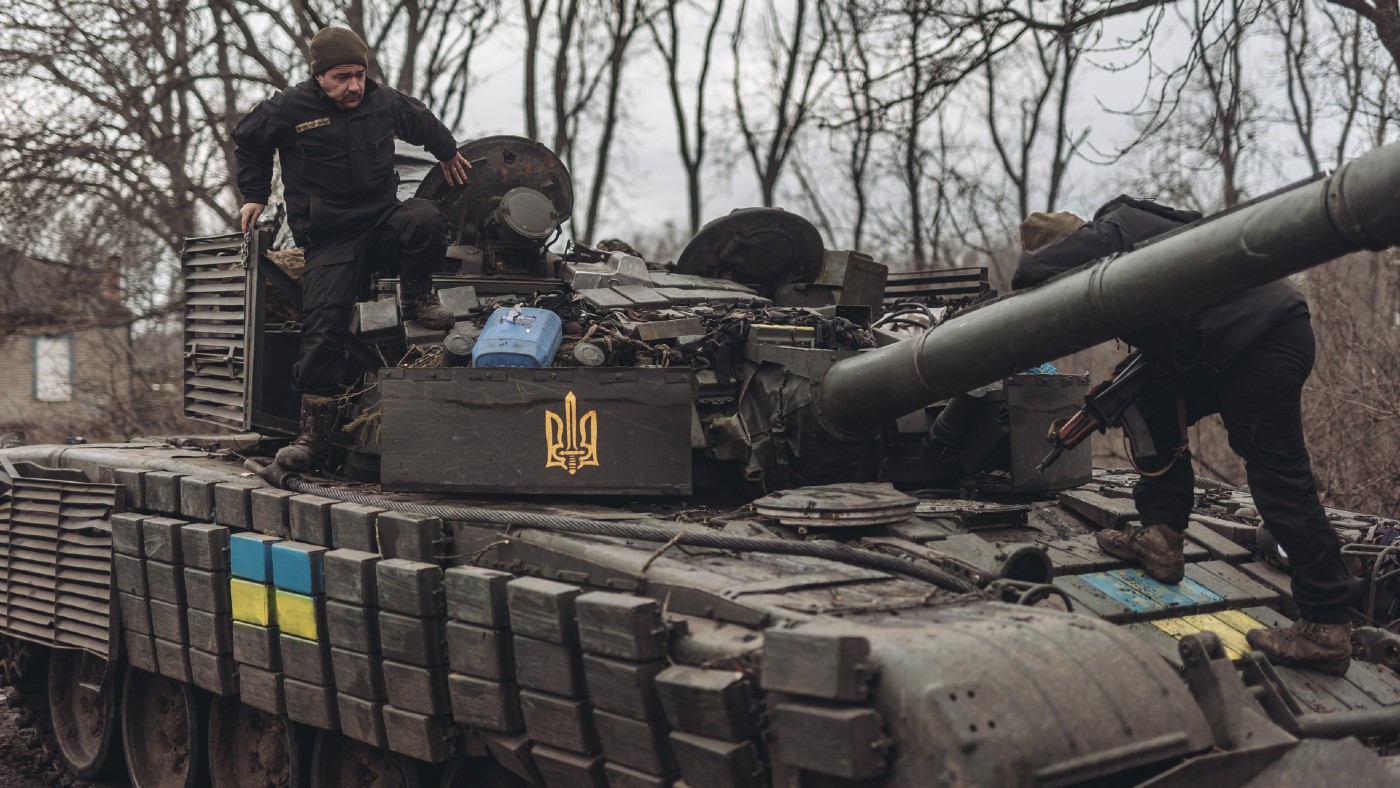Lull in Ukraine war unnerves the West
Kyiv needs to break the stalemate – and it may soon have the means to do that

A free daily email with the biggest news stories of the day – and the best features from TheWeek.com
You are now subscribed
Your newsletter sign-up was successful
Almost a year after it began, the war in Ukraine has “turned static”, said The Economist. Fighting is now largely confined to “bloody pounding along a short section of the front” around the eastern city of Bakhmut. Russia has failed to make any meaningful advances, despite a heavy loss of troops, but a frozen conflict suits it well enough. It gives Moscow time “to dig in, reinforce its lines and prepare for a fresh assault”.
Kyiv needs to break the stalemate – and the good news is that it may soon have the means to do that. The West has promised Ukraine armoured infantry carriers, and Britain has gone further by committing to supplying it with a squadron of 14 Challenger 2 tanks. If other allies follow suit with providing advanced tanks, it could give Kyiv “a chance of punching a hole through the Russian-held land bridge that connects occupied Crimea to Russia”.
Troop numbers not a decisive advantage
Lulls in the Ukraine War make Western observers nervous, said Phillips Payson O’Brien in The Atlantic. The assumption is that time is on Russia’s side, and that it will soon start “massing its supposed great reserves” to reverse its battlefield losses. But these fears are misplaced. Troop numbers are not a decisive advantage in modern warfare unless those troops are well trained and well armed. Owing to sanctions and hopeless inefficiencies in the military supply chain, Russia’s conscripts are neither of those things.
The Week
Escape your echo chamber. Get the facts behind the news, plus analysis from multiple perspectives.

Sign up for The Week's Free Newsletters
From our morning news briefing to a weekly Good News Newsletter, get the best of The Week delivered directly to your inbox.
From our morning news briefing to a weekly Good News Newsletter, get the best of The Week delivered directly to your inbox.
Far from creating a powerful new army, Moscow is “assembling an inferior version of the force with which it started the war”. Ukraine’s forces, meanwhile, are “significantly stronger” than they were a year ago, and “will keep getting stronger”.
More tanks are needed
Tanks will help the Ukrainians, but they’ll need more than are currently on the table, said Dan Sabbagh in The Guardian. Poland wants to send 14 German-made Leopard 2s, if Berlin clears them for export; Finland is also thought to have offered some. But Kyiv has called for 300 tanks, and experts reckon it will need at least 100 to mount a counter-offensive.
It will apparently take between three and six weeks for Ukrainian soldiers to achieve “a basic proficiency” in using these tanks. Time pressures are mounting for the Ukrainians, who need to achieve a breakthrough this spring “before the patience of Western backers and their stocks of munitions run out”.
Support for Ukraine is waning fast in the US, said Wolfgang Münchau in The New Statesman. The number of Republicans backing military aid for Kyiv fell from 80% in March to 55% in November, and now stands at 48%. There’s no prospect of a diplomatic settlement to end this war happening any time soon. “Easier to see, however, are the limits of Western support.”
A free daily email with the biggest news stories of the day – and the best features from TheWeek.com